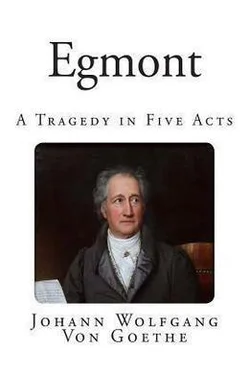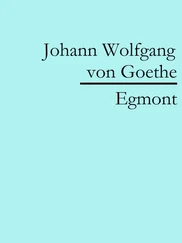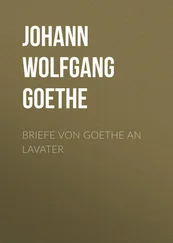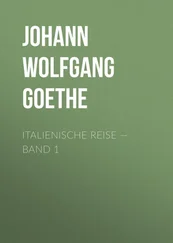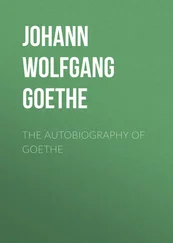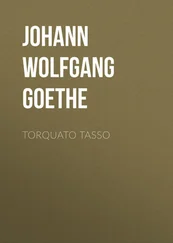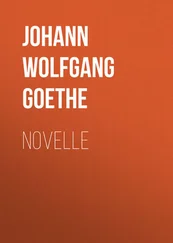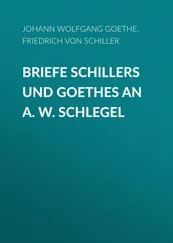Johann von Goethe - Egmont
Здесь есть возможность читать онлайн «Johann von Goethe - Egmont» весь текст электронной книги совершенно бесплатно (целиком полную версию без сокращений). В некоторых случаях можно слушать аудио, скачать через торрент в формате fb2 и присутствует краткое содержание. Год выпуска: 2015, Издательство: epubBooks Classics, Жанр: Драматургия, на английском языке. Описание произведения, (предисловие) а так же отзывы посетителей доступны на портале библиотеки ЛибКат.
- Название:Egmont
- Автор:
- Издательство:epubBooks Classics
- Жанр:
- Год:2015
- ISBN:нет данных
- Рейтинг книги:4 / 5. Голосов: 1
-
Избранное:Добавить в избранное
- Отзывы:
-
Ваша оценка:
- 80
- 1
- 2
- 3
- 4
- 5
Egmont: краткое содержание, описание и аннотация
Предлагаем к чтению аннотацию, описание, краткое содержание или предисловие (зависит от того, что написал сам автор книги «Egmont»). Если вы не нашли необходимую информацию о книге — напишите в комментариях, мы постараемся отыскать её.
Egmont — читать онлайн бесплатно полную книгу (весь текст) целиком
Ниже представлен текст книги, разбитый по страницам. Система сохранения места последней прочитанной страницы, позволяет с удобством читать онлайн бесплатно книгу «Egmont», без необходимости каждый раз заново искать на чём Вы остановились. Поставьте закладку, и сможете в любой момент перейти на страницу, на которой закончили чтение.
Интервал:
Закладка:
Brackenburg. Let me then die with thee! Share it! oh, share it! There is enough to extinguish two lives.
Clara. Hold! Thou must live, thou canst live.—Support my Mother, who, without thee, would be a prey to want. Be to her what I can no longer be, live together, and weep for me. Weep for our fatherland, and for him who could alone have upheld it. The present generation must still endure this bitter woe; vengeance itself could not obliterate it. Poor souls, live on, through this gap in time, which is time no longer. To–day the world suddenly stands still, its course is arrested, and my pulse will beat but for a few minutes longer. Farewell.
Brackenburg. Oh, live with us, as we live only for thy sake! In taking thine own life, thou wilt take ours also; still live and suffer. We will stand by thee, nothing shall sever us from thy side, and love, with ever–watchful solicitude, shall prepare for thee the sweetest consolation in its loving arms. Be ours! Ours! I dare not say, mine.
Clara. Hush, Brackenburg! Thou feelest not what chord thou touchest. Where hope appears to thee, I see only despair.
Brackenburg. Share hope with the living! Pause on the brink of the precipice, cast one glance into the gulf below, and then look back on us.
Clara. I have conquered; call me not back to the struggle.
Brackenburg. Thou art stunned; enveloped in night, thou seekest the abyss. Every light is not yet extinguished, yet many days—!
Clara. Alas! Alas! Cruelly thou dost rend the veil from before mine eyes. Yes, the day will dawn! Despite its misty shroud it needs must dawn. Timidly the burgher razes from his window, night leaves behind an ebon speck; he looks, and the scaffold looms fearfully in the morning light. With re–awakened anguish the desecrated image of the Saviour lifts to the Father its imploring eyes. The sun veils his beams, he will not mark the hero's death–hour. Slowly the fingers go their round—one hour strikes after another—hold! Now is the time. The thought of the morning scares me into the grave.
(She goes to the window as if to look out, and drinks secretly.)
Brackenburg. Clara! Clara!
Clara (goes to the table, and drinks water). Here is the remainder. I invite thee not to follow me. Do as thou wilt; farewell. Extinguish this lamp silently and without delay; I am going to rest. Steal quietly away, close the door after thee. Be still! Wake not my Mother! Go, save thyself, if thou wouldst not be taken for my murderer. [Exit.
Brackenburg. She leaves me for the last time as she has ever done. What human soul could conceive how cruelly she lacerates the heart that loves her? She leaves me to myself, leaves me to choose between life and death, and both are alike hateful to me. To die alone! Weep, ye tender souls! Fate has no sadder doom than mine. She shares with me the death–potion, yet sends me from her side! She draws me after her, yet thrusts me back into life! Oh, Egmont, how enviable a lot falls to thee! She goes before thee! The crown of victory from her hand is thine, she brings all heaven to meet thee!—And shall I follow? Again to stand aloof? To carry this inextinguishable jealousy even to yon distant realms? Earth is no longer a tarrying place for me, and hell and heaven offer equal torture. Now welcome to the wretched the dread hand of annihilation!
[Exit. (The scene remains some time unchanged. Music sounds, indicating Clara's death; the lamp, which Brackenburg had forgotten to extinguish, flares up once or twice, and then suddenly expires. The scene changes to.)
Scene IV
A Prison
Egmont is discovered sleeping on a couch. A rustling of keys is heard; the door opens; servants enter with torches; Ferdinand and Silva follow, accompanied by soldiers. Egmont starts from his sleep.
Egmont. Who are ye that thus rudely banish slumber from my eyes? What mean these vague and insolent glances? Why this fearful procession? With what dream of horror come ye to delude my half awakened soul?
Silva. The duke sends us to announce your sentence.
Egmont. Do ye also bring the headsman who is to execute it?
Silva. Listen, and you will know the doom that awaits you.
Egmont. It is in keeping with the rest of your infamous proceedings. Hatched in night and in night achieved, so would this audacious act of injustice shroud itself from observation!—Step boldly forth, thou who dost bear the sword concealed beneath thy mantle; here is my head, the freest ever severed by tyranny from the trunk.
Silva. You err! The righteous judges who have condemned you will not conceal their sentence from the light of day.
Egmont. Then does their audacity exceed all imagination and belief. Silva (takes the sentence from an attendant, unfolds it, and reads). "In the King's name, and invested by his Majesty with authority to judge all his subjects of whatever rank, not excepting the knights of the Golden Fleece, we declare―"
Egmont. Can the king transfer that authority?
Silva. "We declare, after a strict and legal investigation, thee, Henry, Count Egmont, Prince of Gaure, guilty of high treason, and pronounce thy sentence:—That at early dawn thou be led from this prison to the market–place, and that there, in sight of the people, and as a warning to all traitors, thou with the sword be brought from life to death. Given at Brussels." (Date and year so indistinctly read as to be imperfectly heard by the audience.) "Ferdinand, Duke of Alva, President of the Tribunal of Twelve." Thou knowest now thy doom. Brief time remains for thee to prepare for the impending stroke, to arrange thy affairs, and to take leave of thy friends.
[Exit Silva with followers. Ferdinand remains with two torch–bearers. The stage is dimly lighted.
Egmont (stands for a time as if buried in thought, and allows Silva to retire without looking round. He imagines himself alone, and, on raising his eyes, beholds Alva's son).
Thou tarriest here? Wouldst thou by thy presence augment my amazement, my horror? Wouldst thou carry to thy father the welcome tidings that in unmanly fashion I despair? Go. Tell him that he deceives neither the world nor me. At first it will be whispered cautiously behind his back, then spoken more and more loudly, and when at some future day the ambitious man descends from his proud eminence, a thousand voices will proclaim—that 'twas not the welfare of the state, not the honour of the king, not the tranquillity of the provinces, that brought him hither. For his own selfish ends he, the warrior, has counselled war, that in war the value of his services might be enhanced. He has excited this monstrous insurrection that his presence might be deemed necessary in order to quell it. And I fall a victim to his mean hatred, his contemptible envy. Yes, I know it, dying and mortally wounded I may utter it; long has the proud man envied me, long has he meditated and planned my ruin.
Even then, when still young, we played at dice together, and the heaps of gold, one after the other, passed rapidly from his side to mine; he would look on with affected composure, while inwardly consumed with rage, more at my success than at his own loss. Well do I remember the fiery glance, the treacherous pallor that overspread his features when, at a public festival, we shot for a wager before assembled thousands. He challenged me, and both nations stood by; Spaniards and Netherlanders wagered on either side; I was the victor; his ball missed, mine hit the mark, and the air was rent by acclamations from my friends. His shot now hits me. Tell him that I know this, that I know him, that the world despises every trophy that a paltry spirit erects for itself by base and surreptitious arts. And thou!
If it be possible for a son to swerve from the manners of his father, practise shame betimes, while thou art compelled to feel shame for him whom thou wouldst fain revere with thy whole heart.
Читать дальшеИнтервал:
Закладка:
Похожие книги на «Egmont»
Представляем Вашему вниманию похожие книги на «Egmont» списком для выбора. Мы отобрали схожую по названию и смыслу литературу в надежде предоставить читателям больше вариантов отыскать новые, интересные, ещё непрочитанные произведения.
Обсуждение, отзывы о книге «Egmont» и просто собственные мнения читателей. Оставьте ваши комментарии, напишите, что Вы думаете о произведении, его смысле или главных героях. Укажите что конкретно понравилось, а что нет, и почему Вы так считаете.
